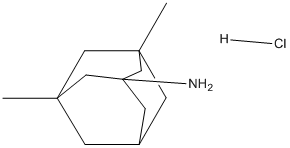Postnatal maternal separation was performed as previously reported. Briefly, pups delivered on day of birth by timed-pregnant Sprague-Dawley rats were placed, as individual litters, in a clean cage for 3 h each day on P1–10, having no physical contact with their mothers. Control pups remained undisturbed in the maternal nest throughout. Pups remained with their mothers until weaning at P21. Increasing evidences demonstrated that postnatal maternal separation substantially induced the functional adaptation of transcriptional factors, and modified the expression of specific proteins to mediate the enduring alteration of social and memory behaviors in the rodents. In Balb/c mice, infant maternal separation decreased the expression of HDACs 1, 3, 7, 8, and 10, and increased acetylation of NSC 136476 Hedgehog inhibitor histone H4 in the forebrain neocortex in adulthood. It was also reported that postnatal maternal separation induced significant hypomethylation of DNA and dissociation of phosphorylated MeCP2 in the promoter region of Avp, thus contributing to the sustained hypersecretion of cortisone in the brain. Significantly increased histone acetylation in the promoter regions of Arc and Egr1, two immediate early genes underlying experience-induced synaptic plasticity, was also recently observed in the hippocampus of mice with maternal separation. Dynamic alteration of hippocampal histone methylation at the Bdnf IV promoter and BDNF expression, concomitant with impairments on hippocampal-dependent cognitive tasks, were also observed in the rats with postnatal maternal separation. Consistent evidences also demonstrated that other early life stress from maltreatment or abuse induced substantial modification of methylation patterns at specific loci of the genomic DNA, which in turn permanently altered gene expression in the brain and induced alteration of social behavior in the adult rodents and humans. In the present study, postnatal maternal separation decreased the occupancy of transcriptional factors, which leading to the increased histone H3 acetylation and decreased cytosine methylation, in the promoter region of Crh, and consequently impaired hippocampal synaptic plasticity and behavioral performance in the cognitive tasks. These results provided further evidence for the postnatal maternal separation – induced lasting epigenetic modification at specific loci of the genomic DNA in the hippocampus. Epigenetic mechanism was critically involved in the modulation of hippocampal synaptic plasticity and memory function in the rodents. Functional adaptation of MeCP2 notably modulated the expression of several proteins involved in the hippocampal synaptic plasticity and learning and memory. Either down- or upregulation of function of MeCP2 substantially influenced synaptic plasticity and memory function in several neurological scenarios. Upon binding to the methylated CpG sites in the promoter region, MeCP2 may recruit other transcriptional factors, including HDACs, to modify the histone acetylation and repress the transcription of target genes. It was also reported that MeCP2 may form a complex with DNMT1, the enzyme that catalyzes DNA methylation at CpG sites in promoter regions, to ASP1517 808118-40-3 maintain DNA methylation in the genome, and alteration of the MeCP2 activity significantly modified the function of DNMT1 to  maintain the cytosine methylation in the promoter region.
maintain the cytosine methylation in the promoter region.
Phosphorylation of several serine residues significantly modulates the association between MeCP2 and methylated CpG
Leave a reply